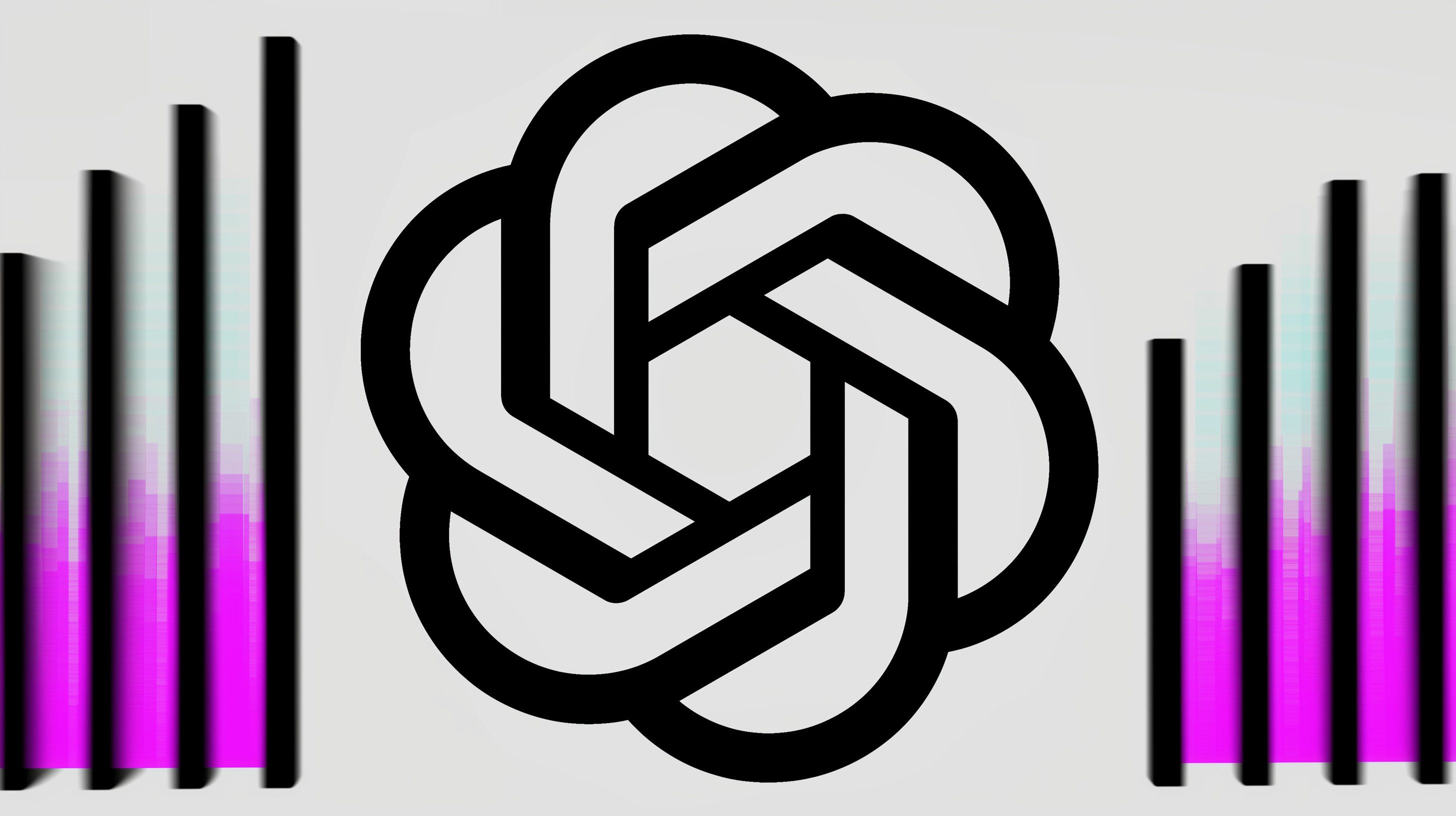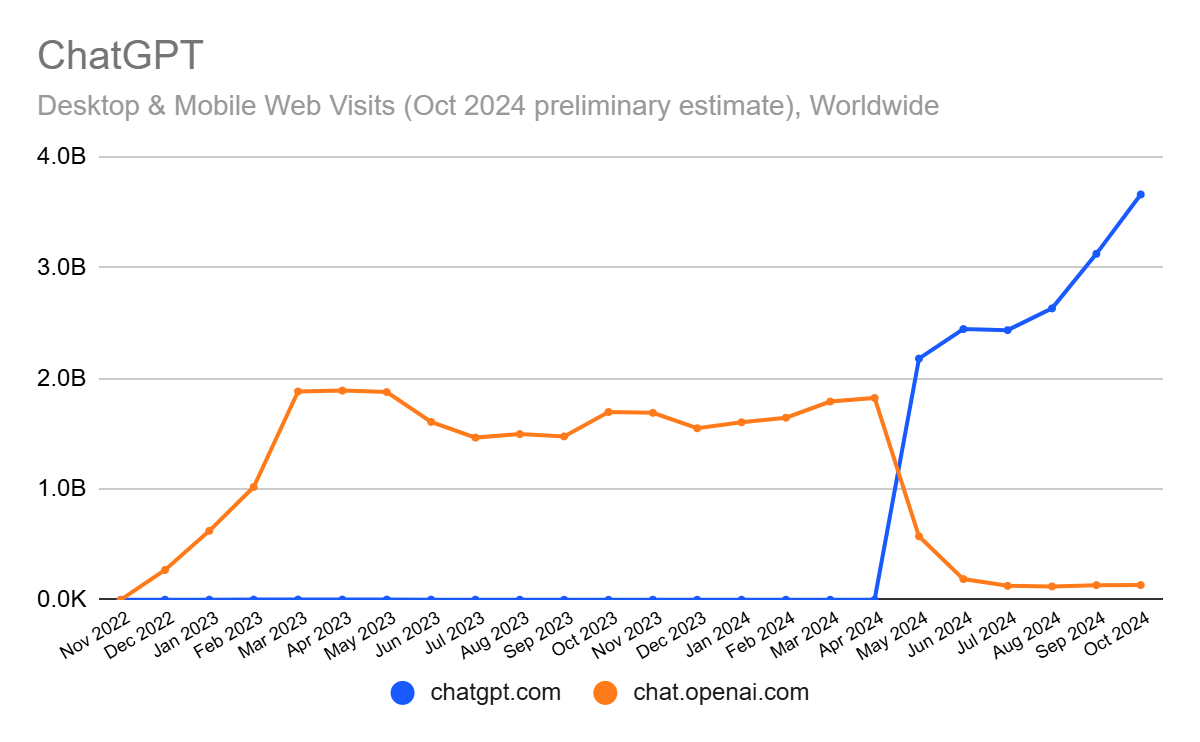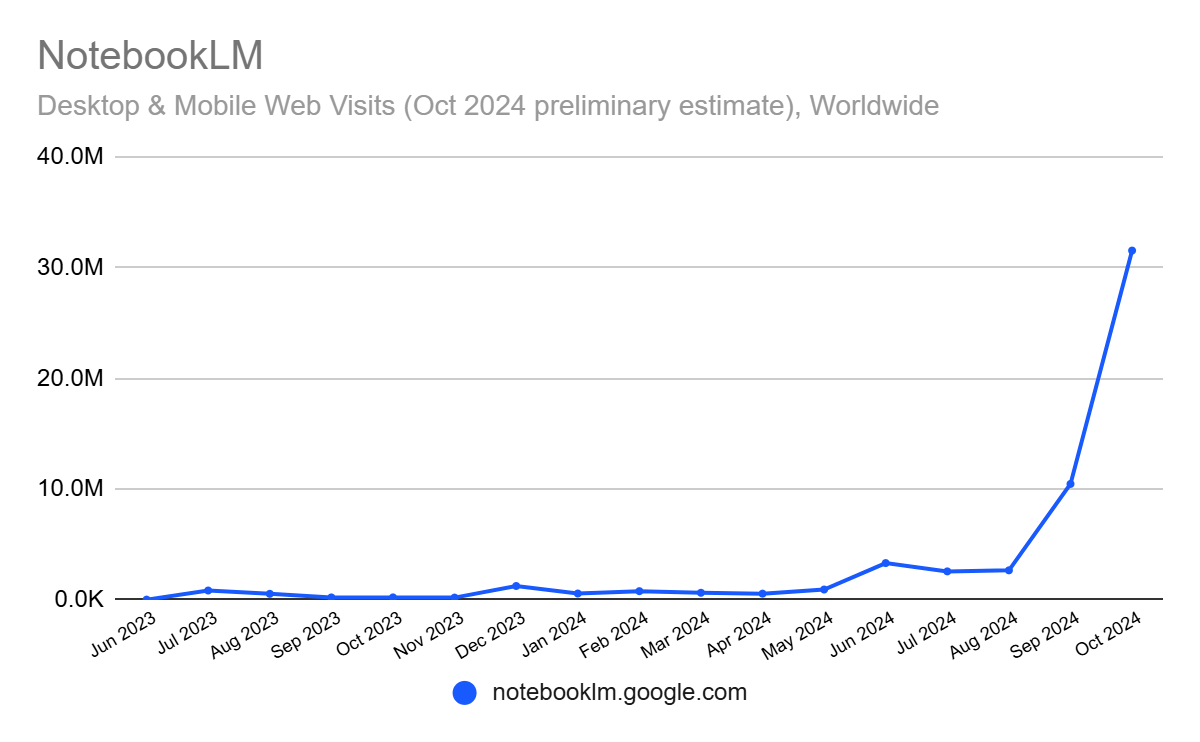ChatGPT hits 3.7 billion visits in October as growth accelerates to 115% year-over-year

ChatGPT continues its strong growth, while a new podcast feature sends Google's NotebookLM usage soaring. AI services across the industry are seeing steady user growth, albeit at a measured pace.
Recent data from Similarweb shows ChatGPT hit a new milestone with 3.7 billion global visits in October, marking a 17.2% increase from the previous month and 115.9% year-over-year growth.

The OpenAI chatbot maintains its upward trend, following 8% growth in August and 18.7% in September. Its mobile app saw a 19% increase in daily active US users. The recent addition of ChatGPT search could boost these numbers further.
Google's NotebookLM sees breakout success
Google's NotebookLM is growing even faster, with visits increasing over 200% to 31.5 million in October—its second consecutive month of triple-digit growth. Of course, it's still a far cry from ChatGPT's popularity.
The sudden surge stems from a new AI podcast feature where two synthetic voices discuss document contents. Social media demos of this capability went viral, bringing widespread attention to the previously lesser-known service, which has been available since the summer of 2023.

The two platforms serve different purposes: NotebookLM focuses on document interaction, while ChatGPT emphasizes general conversation and now internet searches.
Broader AI landscape shows more moderate growth
Google reportedly plans to release Gemini 2.0 in December, along with "Jarvis," a web-capable agent co-pilot. The current Gemini website recorded 291.6 million visits in October, up 6.2% from September. These numbers don't capture Gemini's full usage, as the models integrate with many other Google services.
Other AI services also saw gains: Microsoft's Copilot grew 87.6% to 69.4 million visits, in part due to Bing chat redirects. Perplexity (199.2% YoY, 90.8 million visits) and Claude (394.9% YoY, 84.1 million visits) both grew 25.5% month over month.
Given the significant investments in generative AI and the expected surge in early adoption, these growth rates seem moderate, at a much lower overall level compared to ChatGPT. Of course, they could accelerate as services become more useful or easier to use. AI-based search engines such as Perplexity and ChatGPT with Search still face challenges with accuracy and misinformation.
AI News Without the Hype – Curated by Humans
As a THE DECODER subscriber, you get ad-free reading, our weekly AI newsletter, the exclusive "AI Radar" Frontier Report 6× per year, access to comments, and our complete archive.
Subscribe nowAI news without the hype
Curated by humans.
- Over 20 percent launch discount.
- Read without distractions – no Google ads.
- Access to comments and community discussions.
- Weekly AI newsletter.
- 6 times a year: “AI Radar” – deep dives on key AI topics.
- Up to 25 % off on KI Pro online events.
- Access to our full ten-year archive.
- Get the latest AI news from The Decoder.